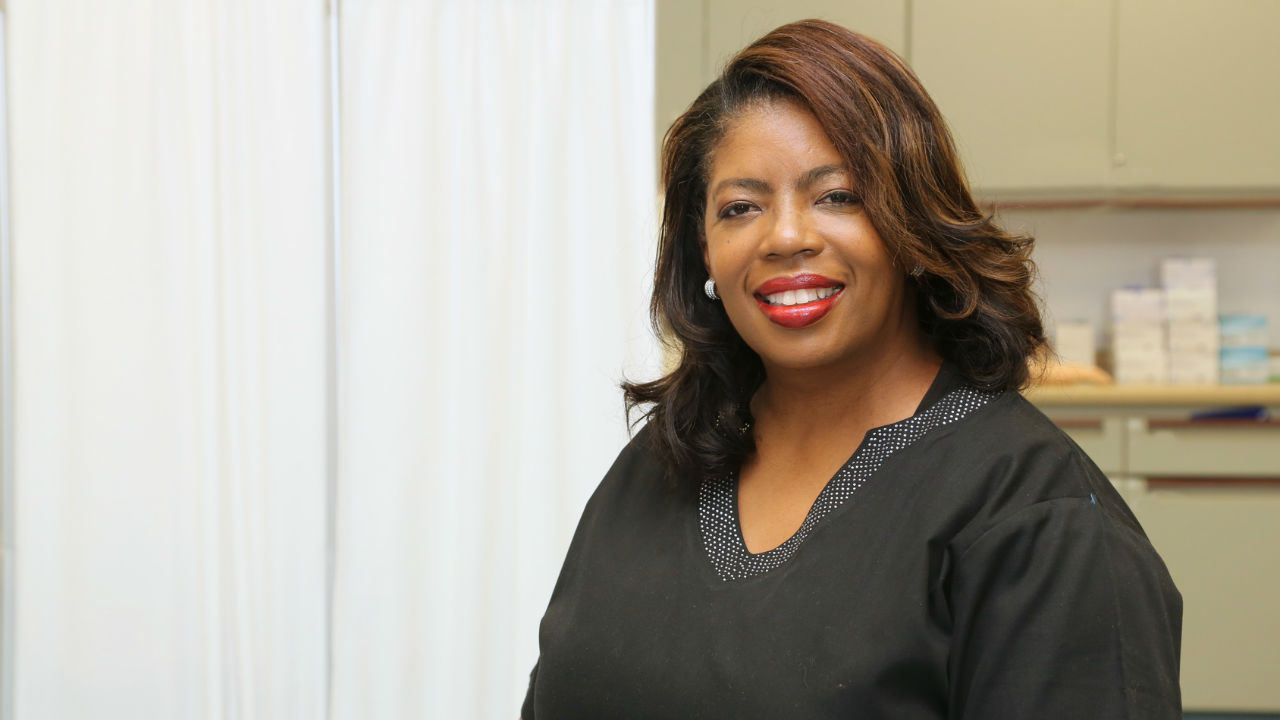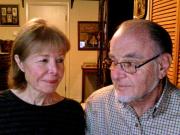 Monkey Business/fotolia
Monkey Business/fotolia
What do you believe? Are you prepared to open your mind to new facts? Cognitive psychologists tell us that most people cling to what they already believe and are so averse to changing their minds that new facts only make them cling to their old beliefs even MORE stubbornly. So, are you prepared to open your mind?
As of 2016, millions of women do not believe that estrogen therapy reduces breast cancer risk. In fact, they feel sure that it increases the risk. But new research confirms lots of old research. The answer to the question in the title is TRUE.
Why do so many women hold mistaken beliefs about estrogen, mistakes that cause them to avoid taking estrogen when it is such a beneficial hormone and could save their lives? There are three main sources of misinformation:
1) Misunderstood findings from the Women’s Health Initiative (WHI), a large study released in 2002.
2) Misunderstanding estrogen therapy for women who've had a hysterectomy versus those who haven't.
3) Misunderstanding anti-estrogen treatments for breast cancer.
EmpowHER has previously focused on how so many people were misled by reports of the WHI findings, so we will only briefly discuss it here.
The WHI was really two studies. The first to be reported was the study of women who had a natural menopause and still had a uterus. These women needed to take estrogen PLUS a second progesterone-like hormone to protect the uterus from developing cancer. The hormone chosen by the WHI is called Prempro and the progesterone in this pill is unusually powerful at suppressing the effects of estrogen — including all the good effects.
There are many forms of menopausal hormone therapy on the market and the findings for Prempro do not apply to other forms. But the media did not realize or report this fact. When it was found that women using Prempro were at greater risk for heart attacks, strokes and breast cancer, people panicked and abandoned any and all forms of menopausal hormone therapy. They threw out the baby with the bath water.
In 2004, the WHI reported the findings of their second study of women who had a hysterectomy and who took estrogen-only (ET). This study found only one health risk (as long as the women were not over 60 when they started ET), and that is a slightly increased risk of VTA (a blood clot in a vein). Even that risk is essentially eliminated by using an estrogen gel or skin patch instead of taking a pill.
WHI follow-up results published in 2011 found important health benefits of ET. Did women and doctors then start using ET in droves? No, they did not. Why? Their pre-existing fears trumped new information. Our study estimates that thousands of women have already died and thousands more will die because unwarranted fears keep them from using ET.2
The second cause of women’s avoidance of ET is their incomplete understanding of the relationship between estrogen and breast cancer. That relationship is extremely complex and hard to understand. Many women have heard that breast cancer is widely treated by taking an anti-estrogen (e.g. tamoxifen or an aromatase inhibitor).
Women also hear that many breast cancers contain estrogen-receptors. It seems logical to conclude that estrogen must promote the growth of breast cancer cells, but that is not the whole story. Very few women know that estrogen also kills breast cancer cells!3
We promise a new article on the Ahah section soon that will go into more detail about the complex relationship between estrogen and breast cancer. We want to leave you with this fact from the WHI study of women using ET:
In the three-and-a-half-year follow-up of ET users, it was found that ET significantly reduced the risk of developing breast cancer.4
Our take-away message is that beneficial effects of estrogen replacement therapy occur in women with hysterectomies who start ET prior to age 60 or within 10 years of menopause.
Are you able to believe it?
Reviewed February 17, 2017
by Michele Blacksberg RN
Edited by Jody Smith
1) Estrogen Avoidance Linked to Deaths of 50,000 Women. EmpowHER.
https://www.empowher.com/menopause/content/estrogen-avoidance-linked-deaths-50000-women
2) Sarrel, Philip et al. The Mortality Toll of Estrogen Avoidance AmerJPublicHealth 2013;103:1583-1588.
http://ajph.aphapublications.org/doi/abs/10.2105/AJPH.2013.301295
3) Jordan VC, Ford LG. Paradoxical clinical effect of estrogen on breast cancer risk: A “new” biology of estrogen-induced apoptosis. Cancer Prev Res 2011; 4(5):633-637.
https://www.ncbi.nlm.nih.gov/pmc/articles/PMC3100896
4) Chlebowski RT, Anderson GL. Changing Concepts: Menopausal Hormone Therapy and Breast Cancer.JNatlCancerInst. 2012:104:517-527.
https://www.ncbi.nlm.nih.gov/pmc/articles/PMC4406918
5) Manson, J. E. MD, DrPH, Chlebowski, R. T. MD; Stefanick, M, L. PhD; et al. Menopausal Hormone Therapy and Health Outcomes During the Intervention and Extended Poststopping Phases of the Women’s Health Initiative Randomized Trials. JAMA. 2013;310(13):1353-1368. doi:10.1001/jama.2013.278040
http://jamanetwork.com/journals/jama/fullarticle/1745676






Add a Comment4 Comments
Surely it's better to reduce cancer risk by taking foods/supplements that actively reduce tumours rather than messing with our finely tuned hormone system? When I had cancer I used broccoli sprout juice and alkaline forming foods and this was enough to get rid of my cancer. I now follow the same protocol everyday and remain cancer free, years on. It doesn't have to be broccoli sprout juice - I know of people who used curcumin to heal from cancer. I personally don't believe that we should be even talking about 'risk' of cancer because that is putting everyone into the same bucket so they can be categorised when everyone is different and what works for one does not always work for another. I also think we should go back to basics and look at cultures that are virtually free from cancer - the vasty majority of these follow a simple natural diet free from processed foods and sugar.
January 26, 2018 - 2:33amThis Comment
The statements made in our article are based on findings published in the medical journal articles listed. They argue for a rethinking about estrogen and breast cancer. As we state, the issue is complex. However, an extensive medical literature discusses the negative effects of estrogen deficiency, especially in women who have had a hysterectomy before age 60. These effects include increased risk for: osteoporosis, atherosclerosis, dementia, sexual dysfunction and mortality. Estrogen use, prior to age 60, by women after hysterectomy reduces these risks. With respect to reducing breast cancer risk, estrogen therapy is effective in women of all ages tested.
Unfortunately, fear of breast cancer and misunderstanding of the difference between taking estrogen-only therapy vs estrogen combined with an estrogen-modifying hormone (progestogen) has led to estrogen-avoidance. This has been costly for these women, impairing quality of life and increasing risk of disease and mortality. That estrogen therapy does not increase the risk for developing breast cancer is the conclusion drawn from multiple studies including the Women’s Health Initiative and is the conclusion drawn by major menopause and endocrine societies.
References Related to Estrogen and Breast Cancer
1. Jordan CV, Ford LG. Paradoxical clinical effect of estrogen on breast cancer risk: a “new” biology of estrogen-induced apoptosis. Cancer Prev Res 2011;4(5):633-637.
December 23, 2016 - 11:34am2. Carroll JS, Meyer Ca, Song J, et al. Genome-wide analysis of estrogen receptor binding sites. Nature Genetics 2006; 38:1289-1297
3. Ellis MJ, Gao F, Dehdashti F, et al. Oral estradiol therapy of hormone receptor-positive, aromatase inhibitor-resistant advanced breast cancer. JAMA 2009. 302:774-780.
4. Anderson GL, Chlebowski RT, et al Conjugated equine oestrogen and breast cancer incidence and mortality in postmenopausal women with hysterectomy:extended follow-up of the Women’s Health Initiative randomised placebo-controlled trial. Lancet Oncol 2012; 13:476-486. Also: Chlebowski RT, Anderson GL. Changing Concepts: Menopausal Hormone Therapy and Breast Cancer. JNatlCancerInst 2012;104:517-527.
5. O’Brien KM, Fei C, Sandler DP, et al. Hormone Therapy and Young-Onset Breast Cancer. Am J Epidemiology 2015;181:799-807.
6. Schierbeck LL, Rejnmark L, Tofteng CL, et al. Effect of hormone replacement therapy on cardiovascular events in recently postmenopausal women: randomised trial. BMJ 2012;345:e6409
7. Domchek SM, Friebel TM, Singer CF, et al. Association of risk reducing surgery in BRCA 1 or BRCA 2 mutation carriers with cancer risk and mortality. JAMA 2010;304(9):967-975; also, Domchek SM et al, American Society for Clinical Oncology. Chicago, 2012.
8. Rebbeck TR, Friebel T, Wagner T, et al. PROSE study Group. Effect of short-term hormone replacement therapy on breast cancer risk reduction after bilateral prophylactic oophorectomy in BRCA1 and BRCA2 mutation carriers. J Clin Oncol.2005;23(31):7804-7810
9. Baber RJ et al. 2016 Recommendations on women’s midlife health and menopause hormone therapy. Climacteric 2016;19 (2):109-151.
This Comment
Dr. Sarrel is quite mistaken in his words. Estrogen-alone therapy DOES pose significant health risks, including a higher risk of stroke, blood clots, dementia, peripheral arterial disease (mostly aortic aneurysm), and gallbladder disease. The "timing hypothesis" for heart disease prevention is wishful thinking and disproved by the recent KEEPS trial. The reduced risk of breast cancer seen in WHI estrogen-alone is explained in either one of two ways: 1. an estrogen "binge" effect from Premarin in hysterectomized women 2. Premarin itself acts more like tamoxifen in human females because conjugated equine estrogens may in fact block the more potent endogenous 17-beta estradiol.
December 7, 2016 - 10:53amThis Comment
This medscape article is in favor of hormone replacement baed on each individual woman's situation so I'm not sure what you refer to. I am unable to find the KEEPS Trial link directly.
"Overall, in summary, many favorable effects of hormone therapy were seen in these recently menopausal women. The women with symptoms appeared to have quality-of-life benefit and an overall favorable benefit:risk ratio.
The findings really underscore the need for individualized decision-making about hormone therapy in women, because the decision about starting hormone therapy and the choice of type of hormone therapy will depend on a woman's underlying risk factor status, her various symptoms, and her priorities for treatment." stated Dr. JoAnn Manson, Professor of Medicine at Harvard Medical School and Brigham and Women's Hospital. I am also the current President of the North American Menopause Society (NAMS).
http://www.medscape.com/viewarticle/771917
February 17, 2017 - 4:29pmThis Comment